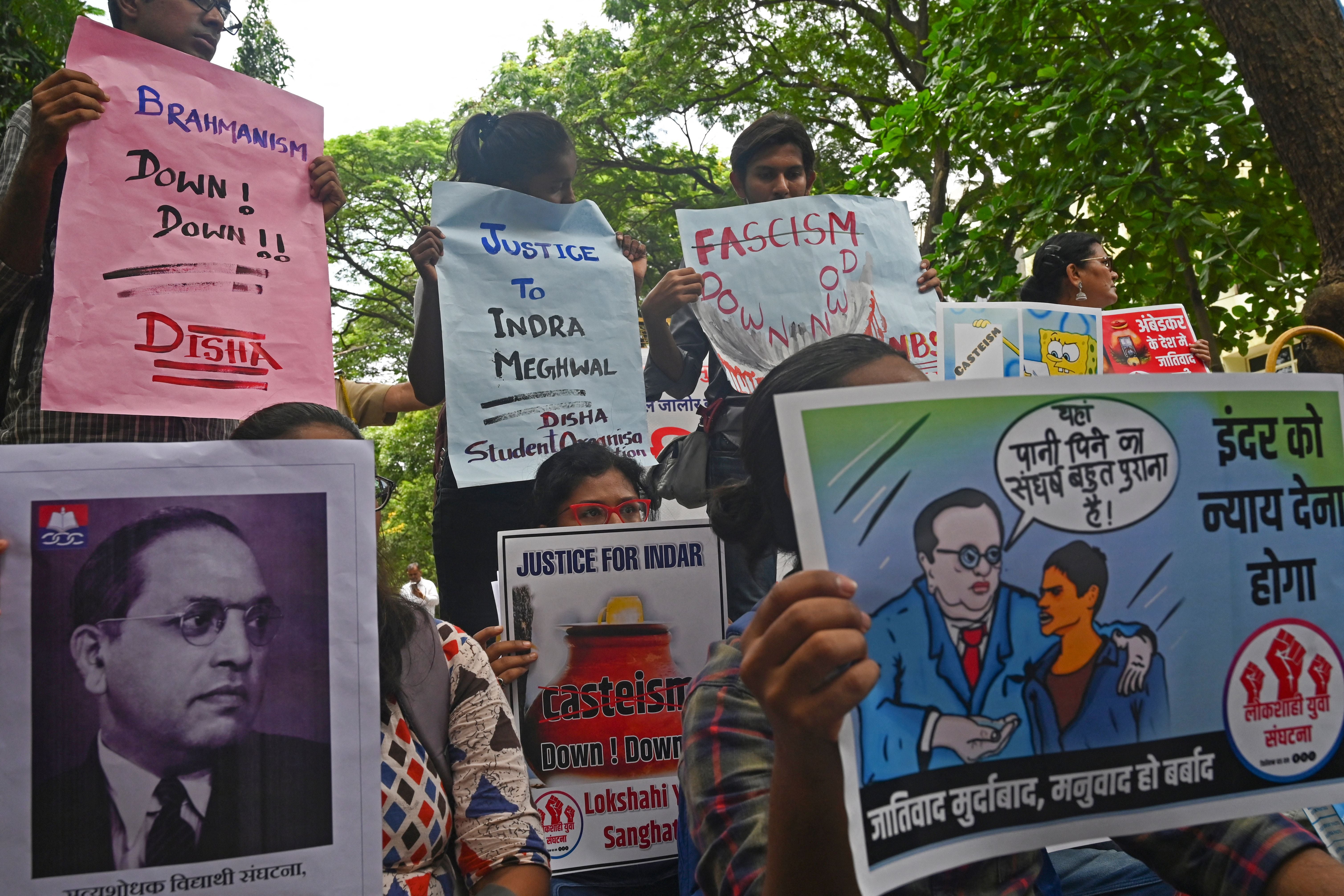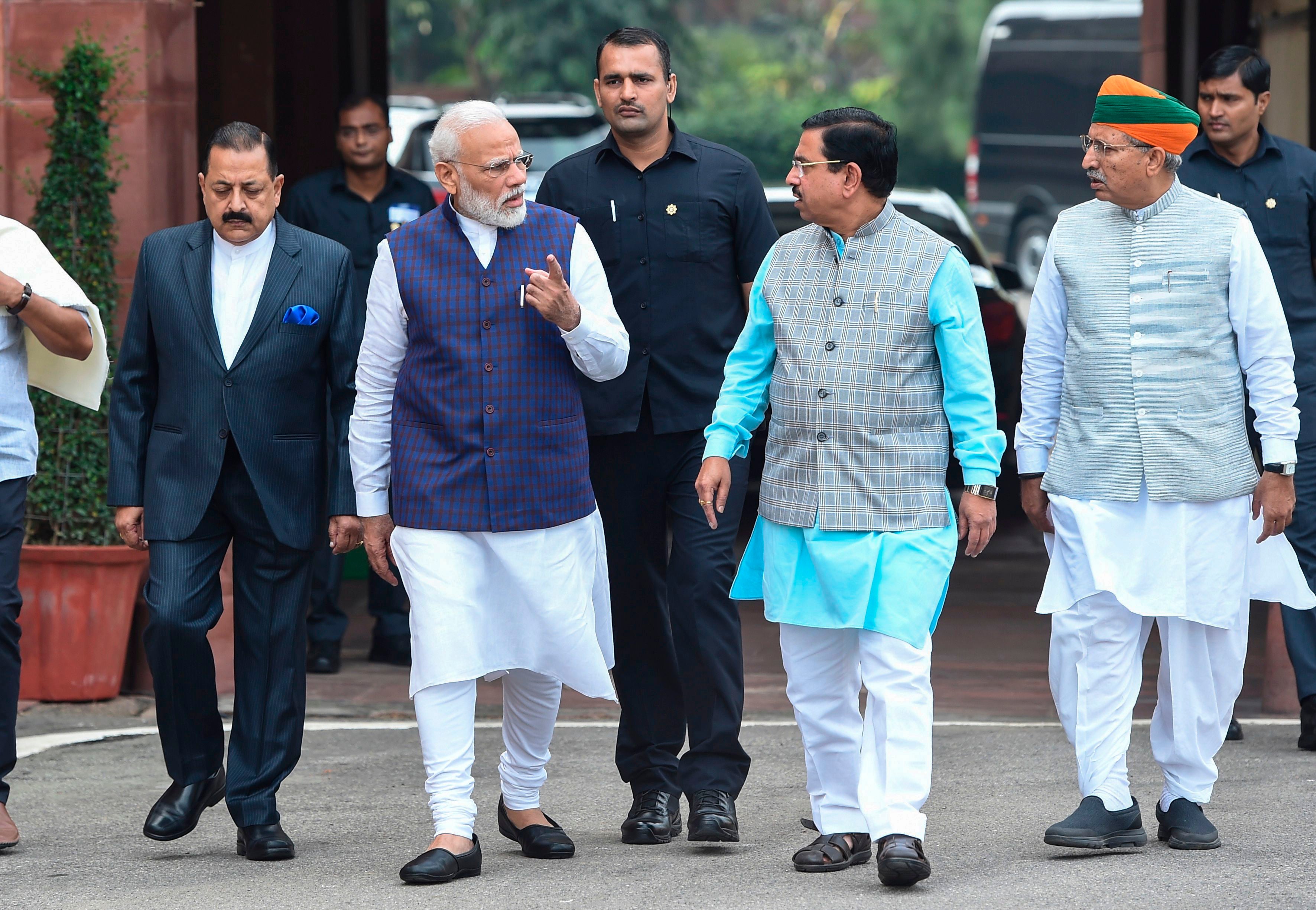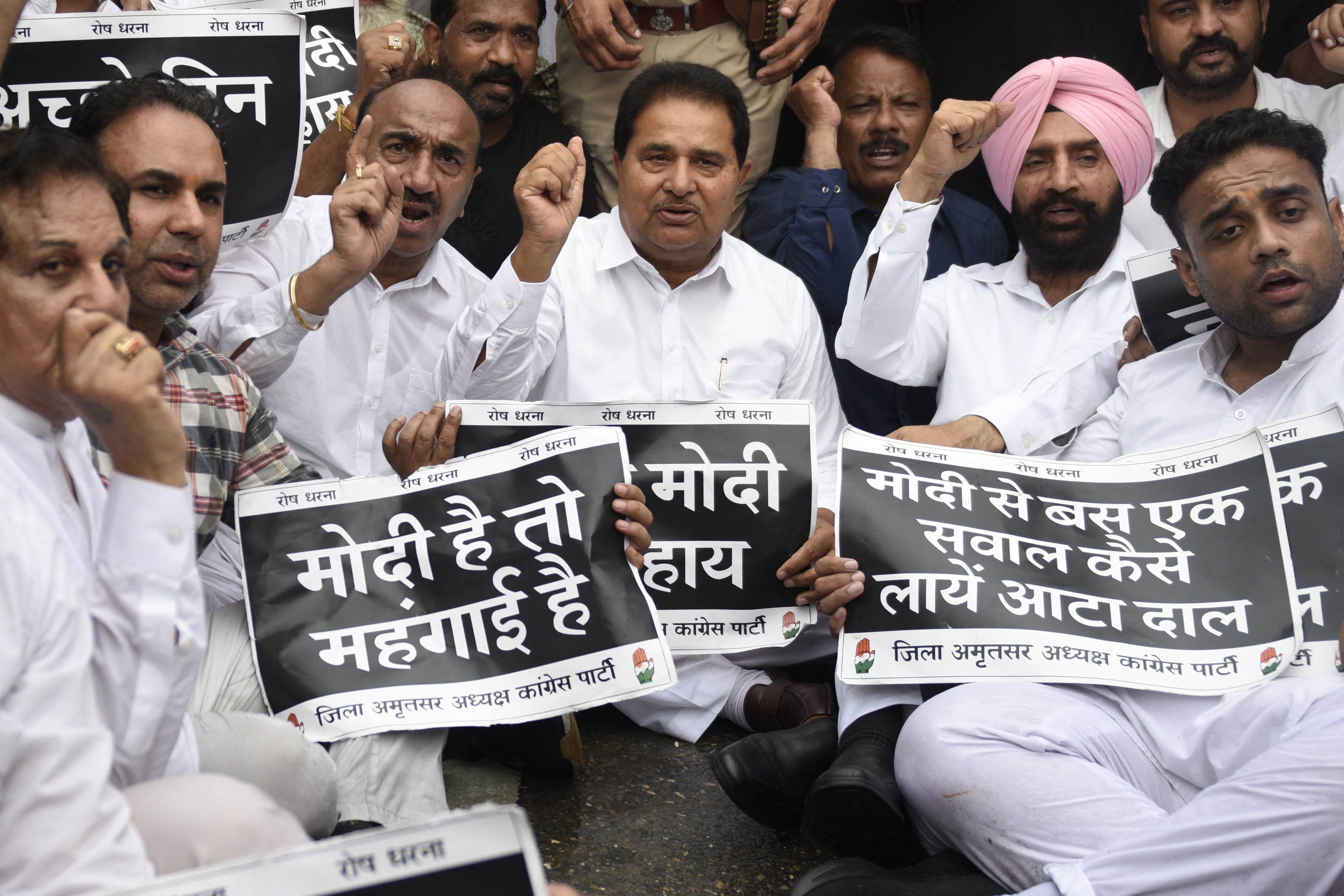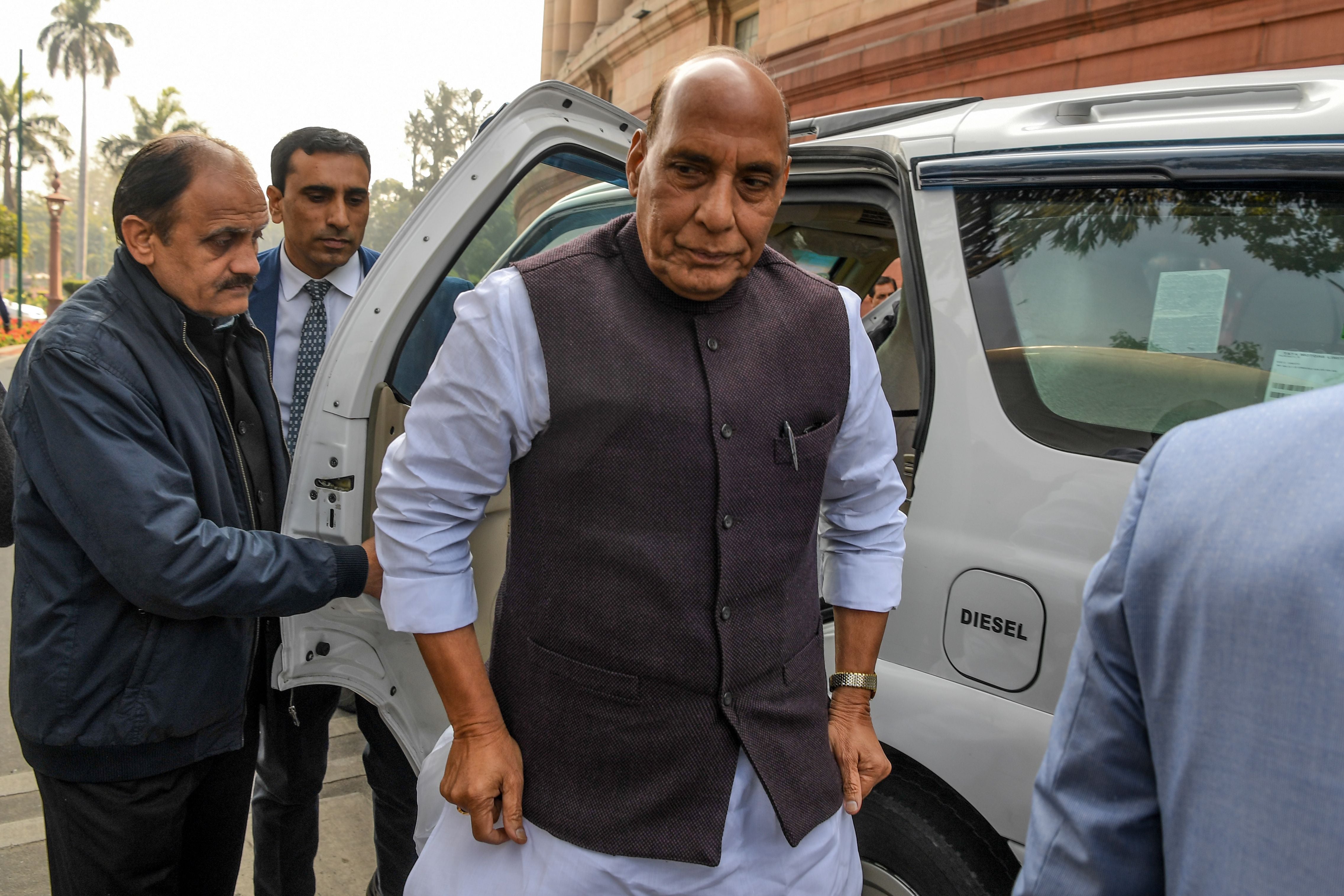Why India is debating the question of what it means to be ‘poor’
The Modi government’s policies to help poorer people are deeply problematic say experts. Namita Singh reports


Despite the long hours, Sanjeev Gahlot works at a mall on the outskirts of Delhi. The 41-year-old and his wife together take in less than Rs 200,000 (around £2,000) a year. Yet he was angry to learn that he and his family would not benefit from a new government scheme providing jobs to the “economically weaker” members of society – because of his caste.
Mr Gahlot belongs to a historically marginalised tribal group, one of a number of so-called “scheduled tribes”, which along with members of formerly oppressed “scheduled castes” are entitled to a range of affirmative action introduced in the decades since India’s independence to try and overturn centuries of persecution.
Now the Supreme Court of India has backed a controversial law passed by Narendra Modi’s government that extends affirmative action to poorer members of the so-called upper castes. The legislation reserves 10 per cent of all government jobs and higher education places for the “poorest of the poor” coming from groups not otherwise benefitting from affirmative action.
The law – passed ahead of the 2019 general election which Modi’s BJP won by a landslide – was popular among the party’s base of upper-caste Hindus, many of whom have long criticised the constitutional system of reservations that bar them from a total of 49.5 per cent of public sector roles and higher education places.
But it has been criticised by economists and social scientists, who question the government’s basis for setting the threshold for defining the “economically weaker section” of society at a household income of less than £8,000 a year. According to World Bank data, the average income for an Indian adult in 2021 was £1,885, meaning the policy will in reality benefit many middle class families.
“I work more than 12 hours a day to ensure that my three children can go to a good school and get a good meal. But all I manage to earn is about Rs 16,000 (£160),” Mr Gahlot tells The Independent. “My wife is a househelp, who earns not more than Rs 3,500 (£35) a month.
“We don’t have any ancestral land. The house we have in Ghaziabad (a Delhi suburb) is less than 0.24 acres. But the government thinks those earning about Rs 800,000 are economically weak, while we are not. This is a way of ensuring the rich get richer, while the poor and oppressed remain behind.”
Defending the new law in the Supreme Court, the BJP argued that it is reasonable to keep members of formerly oppressed castes and tribes out of the new 10 per cent quota because they are already covered by other affirmative action.
But Khalid Anis Ansari, an associate professor of sociology at Azim Premji University, says the basic idea of extending the caste-based system of reservations to economic criteria is “in itself a very problematic thing”.
Reservations were not imagined by the authors of India’s constitution “as a poverty alleviation programme”, he says. “They are premised on the discrimination of historically-marginalised identity groups, whether caste or religion.”

The scheduled castes and tribes (SCs and STs) have been benefiting “for the past 70 years” yet still face widespread discrimination and economic struggles. “Had it been a poverty alleviation exercise... has their poverty gone away?” he asks.
Even if one accepts the government’s move to redefine oppression to include poverty, “within economic backwardness it has kept only one group of people eligible”, says A Kalaiyarasan, an economist and assistant professor at the Madras Institute of Development Studies.
“If you have economic backwardness as a criterion, why reserve economic backwardness only to one group? If poverty is the measure, it exists across groups” including SCs, STs, and “other backward classes” or OBCs, Prof Kalaiyarasan says.
“What is the methodology and epistemology to ascertain that 10 per cent should be reserved for the economically weaker section,” asks Vivek Kumar, a professor at the Centre for Study of Social Systems at Jawaharlal Nehru University. “That itself has not been highlighted or divulged in any document till now.”
Groups identified as marginalised in the Indian constitution have a “long history of exclusion”, explains Raj Narayan, convener of the Janhit Abhiyan NGO which appealed to the Supreme Court challenging the 2019 legislation.
“This exclusion is cumulative in nature,” he tells The Independent. “They were excluded in not only economic terms, but socially, educationally, religiously, politically and even spatially. These people were excluded from the institutions of education, the institution of governance, production, as well as a higher level of judicial proclamation.”
And these are important categories of social and educational backwardness mentioned in the constitution, says Prof Kalaiyarasan. “It is not ambiguous. It is not economic-based. Economic criteria can be taken into account for defining social backwardness. But mere economic criteria alone would not be sufficient to make that claim.”

The concept of reservation was invented to compensate these groups for generations of exclusion, he says, arguing that it is only relatively recently that is has wrongly been understood as a poverty alleviation programme.
“For poverty, you need to have different kinds of affirmative action measures, such as the Mahatma Gandhi National Rural Employment Guarantee Act,” says Prof Ansari, referring to a government policy granting all rural Indians a minimum of 100 days of paid work.
“There are a lot of measures that can be envisaged, and can be thought of in terms of redistribution of wealth and in terms of economics. But that will happen at the level of (individual) citizens. Reservation is supposed to be an exception.”
Manoj Kumar Jha, an MP in India’s upper house of parliament, called on the government “to provide a caste-based census” and therefore the data showing that the new legislation is needed.
He described the setting of the poverty threshold at £8,000 as “bizarre” and “shocking”. “How many people in India get £8,000 per annum? When the government passed the bill, tell me one substantial data (set) which the government showed on the floor of the house.”
Remarkably, the government of India still relies on caste data gathered in 1931. While the first socio-economic caste census (SECC) in independent India was attempted in 2011, the data was released in 2015, a year after Modi began his first term. The government said that it found about 90 million errors in the census, of which over 60 million have been rectified.

However, last year it submitted before the Supreme Court that the data was “unusable” for any official purpose on account of grave “inaccuracies”. In 2018, then-home minister Rajnath Singh announced a new census would be conducted in 2021 but the government backtracked last year, arguing that it was “administratively difficult and cumbersome”.
“I don’t know whether the data is corrupted, or the mind which looks at the data is corrupted,” says Mr Jha, arguing that Modi’s BJP fears the census might expose the disproportionate control of upper caste groups – the party’s core voter base – over the country’s wealth and resources.

“A caste-based census will probably unsettle their politics. Today, they can stop [the caste-based census] because they have a huge majority, but majorities are very, very temporary in democracy. And once that majority is gone, I think we’d certainly go ahead and do it.”
The Independent reached out to the BJP for comment on this story, but did not receive a response before publication.
Kumar argues that the new law was rushed through in the first place because of political considerations, saying alarm bells “started ringing” within the ruling BJP after they lost a string of local elections in 2018.
“They realised that they are losing their (upper caste) vote bank,” he says. “And that’s why, in a very, very shabby manner, without any methodological clarity, without any substantial data set, they have tried to bring in this new reservation.”
The professor rejects the argument that gathering census data on livelihoods by caste would be a too “cumbersome” for the government. “India is reaching to the moon,” Kumar says, referring to the country’s space programme. “How can you say that you don’t have the technology to count heads [when it comes to] caste?”





Join our commenting forum
Join thought-provoking conversations, follow other Independent readers and see their replies
Comments